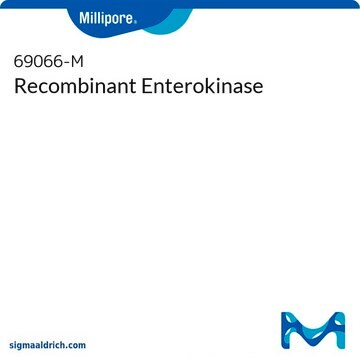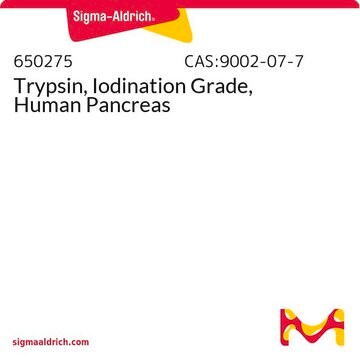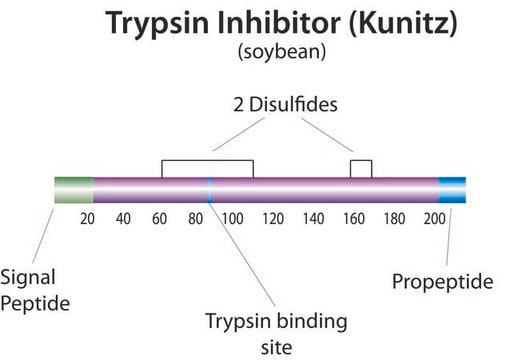T0637
Trypsin inhibitor
saline suspension
Synonym(s):
Trypsin Inhibitor Agarose
About This Item
Recommended Products
Product Name
Trypsin inhibitor–Agarose, saline suspension, protein from Glycine max (soybean)
biological source
protein from Glycine max (soybean)
Quality Level
form
saline suspension
matrix
cross-linked 4% beaded agarose
matrix activation
cyanogen bromide
matrix attachment
amino
matrix spacer
1 atom
capacity
≥1 mg/mL binding capacity (trypsin)(with activity of 10,000 BAEE units per mg)
storage temp.
2-8°C
Application
- of shrimp chymotrypsin
- of protease from Trichoderma reesei
- of Ras-interacting protein 1(Rasip 1)
Physical form
Storage Class Code
10 - Combustible liquids
WGK
WGK 3
Choose from one of the most recent versions:
Certificates of Analysis (COA)
Don't see the Right Version?
If you require a particular version, you can look up a specific certificate by the Lot or Batch number.
Already Own This Product?
Find documentation for the products that you have recently purchased in the Document Library.
Customers Also Viewed
Our team of scientists has experience in all areas of research including Life Science, Material Science, Chemical Synthesis, Chromatography, Analytical and many others.
Contact Technical Service









